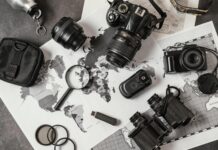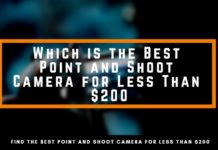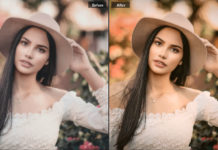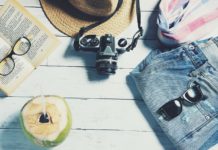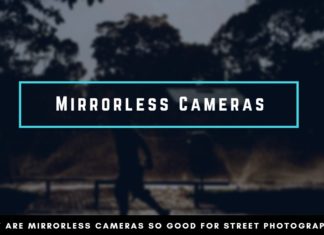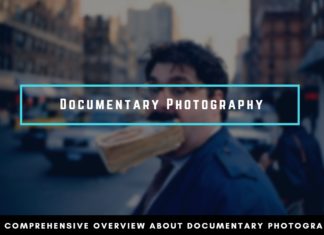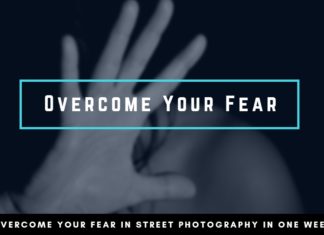Street Photography is a very specific genre, with its own characteristics that challenge the photographer in a unique way. Photography courses can help you to lay down the basis for a successful photography career. You can find many photography courses online, so here is a list that may help You.
Which is the best photography course for You?
As a Street Photographer, you have to have a strong personality to get close and approach strangers. You have to react quickly to catch the decisive moment and you have to be aware of your surroundings at any given time to not miss an interesting situation.
At the basis, photography is still very similar, independently of the genre you are interested in. There is a universal language that applies to any kind of image you see. Whether it be a digital photograph or a drawn painting.
Photography courses can teach you these fundamental rules, that also apply to Street Photography. Some of the photography courses are free, while others demand a small fee.
Do you need a Photography Degree?
Our education systems are based on certificates and degrees to verify that they fulfill certain standards. You can learn photography in various ways. There are art colleges that might focus on the history of photography and teach you everything about the theory of aesthetics as part of a photography major. Then there are more applied degrees, where you are in the studio a lot, shooting stills with different light setups. Or you can have a look at the best online photography course for You.
All the time and tuition fees invested in your education boil down to the same question.
Do I need a multi-year photography apprenticeship to be a good Street Photographer?
Or can I find photography courses for me that are better than a long photojournalism degree for example?
As an engineer myself that went to university for more than five years to acquire my master’s degree, I value the traditional education system very highly. I wouldn’t be able to gather the amount of knowledge alone, disregarding that I also have to understand all the uninspiring theory that is needed for natural sciences.
Photography luckily is a lot different than engineering, math or other sciences. There is a lot of learning-by-doing and you can work your way to better pictures through trial and error or photography courses.
Try to prove a complex mathematical solution with trial & error and you probably won’t succeed in your lifetime. But in photography, you can see the results very quickly after changing a few parameters and over time you will learn how to apply those basic rules on the fly.
Of course, photography still has its fair share of “boring” theory as you might think. Compositional rules, depth of field calculations or the exposure triangle are not the most popular topics in photography, but they are also not as complex as shooting a rocket into the sky and landing it on a specific spot.
Overall I am confident that anyone is capable of learning Photography on its own. The Internet is a beautiful place where education is available en masse. Think of it as a large library that can’t run out of books and where knowledge multiplies.
The offers can also be overwhelming and you might have no idea where to start, which can make it hard to find good photography courses for You.
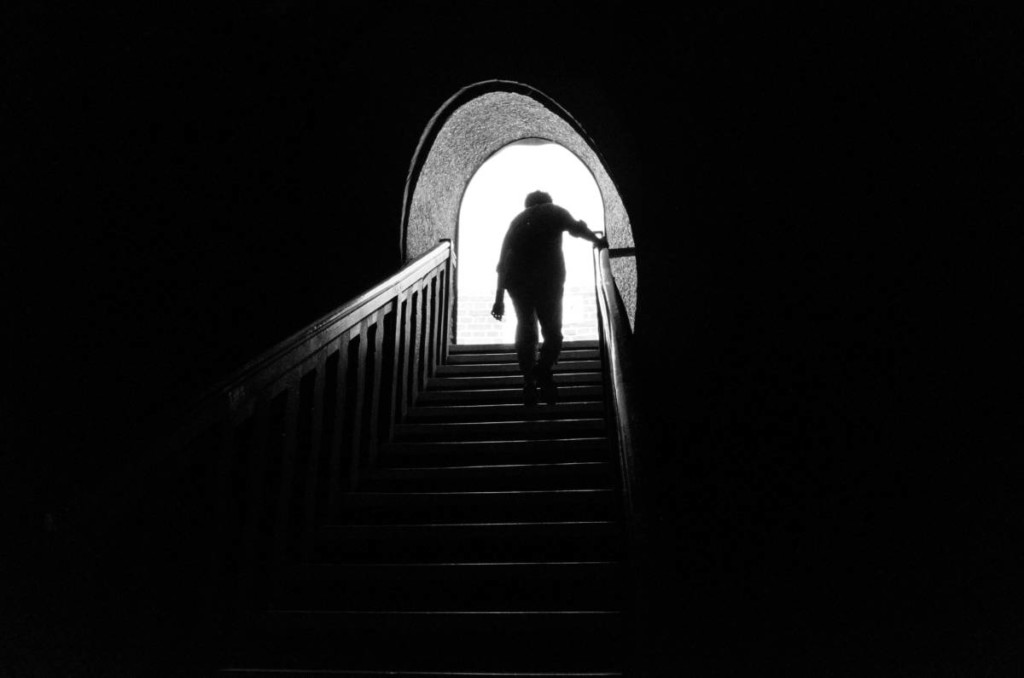
Photography Courses Recommendations
The following photography courses compress the knowledge in a compact class to teach you the fundamentals of photography. Blog articles, single videos or e-books are nice to consume quickly, as you don’t need to invest much time, but they also leave a lot of gaps.
When learning the basics of photography, I’d advise you to invest the time to go through the rough theory and get a total overview of anything that helps you to be a better photographer.
After setting the fundamentals, you should know yourself where you want to invest more time and spent it on improving in certain areas more specifically.
Thomas Leuthard – Video Series on Udemy

The Swiss Street Photographer Thomas Leuthard is known for his great Black & White photo collection. I would describe his style more on the technical side of things, focussing on a clean composition and creating photos that could have been painted as well.
Over the years, he has given numerous workshops both in (Swiss)-German, as well as in English. His knowledge is unremarkable and without a doubt, everyone should be learning something from his photography courses when Thomas discusses the composition of his images.
Sadly, he retired – again – from Street Photography, as it isn’t really fulfilling for him anymore. As he reached such a renowned status amongst the Street Photography community, it is difficult to keep up the inspiration and creating entirely new images.
Since there aren’t any workshop scheduled, I highly recommend you to at least watch this video series to benefit from his experiences on the street.
The linked online photography course focuses on the fundamentals like the exposure triangle or the basic handling of your camera. After the brief introduction, he focuses on more specific Street Photography tips.
It is one of the best online photography courses out there and You shouldn’t hesitate to buy the course if it goes on sale.
Read the Description:
Street Photography can be performed by anyone who owns a camera. It’s available everywhere for everyone. But this does not mean that it is easy. You have to be a complete photographer with the knowledge of the technical skills, but also building up knowledge of human nature. You have to see things before they happen in order to be ready for the decisive moment.
In this video training I will show you what is important when we are on the street. You can learn from my experience which I built up during the last 5 years shooting in the big cities of this world and teaching workshops:
– You will learn how to approach people – You will see how I do it in some making of videos – You will learn about the right settings – I show you what to do in order to increase your social media success
All is being taught with a lot of photos and examples from a practical perspective.
Join his Photography Course on Udemy
In addition to this photography course, I also recommend his “Contact Sheets” series where he discusses why some of his pictures don’t work and how they could have been composed better. This series is directed towards Street Photographers who already know the basic rules and need some input on how to improve the composition by having a look at contact sheets.
Eric Kim – Summer School
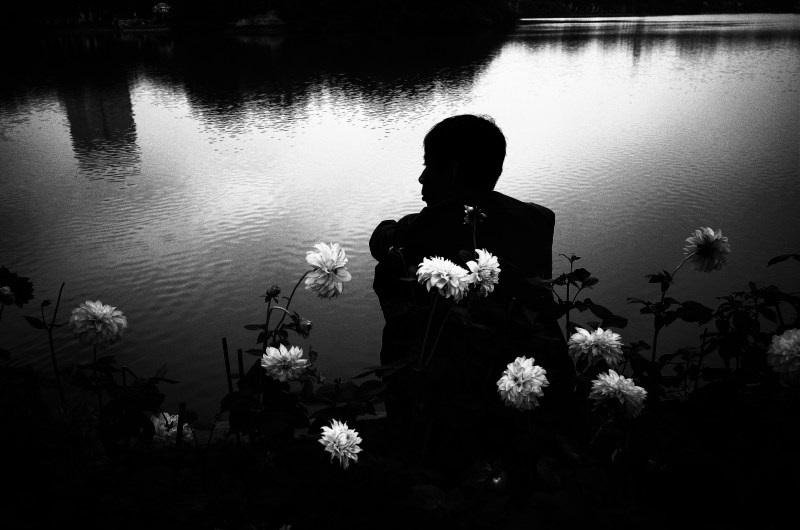
I know Eric is a very controversial person in Street Photography. Although I believe there are far better photographers out there, he is very passionate and puts a lot of work into teaching Street Photography. Two years ago I had the pleasure to meet him in Berlin for a talk and he really is a motivating and enjoyable speaker.
For this summer he creates some kind of “summer school” in the form of a forum with different assignments over a few weeks. He recommends to use his Street Notes booklet for the assignments but it isn’t needed to participate in this photography course.
Without any monetary investment, I guess it is worth a try if you want to keep up with the challenges.
The “school” already started on July 1st but there shouldn’t be any problem to start it late. As an advantage, you already get to see some of the assignments and can figure out if this format interests you.
There aren’t many places to discuss Street Photography online and receiving feedback is very hard since Social Media promotes the “like for like” culture instead of serious critiques. Don’t connect the forum too much to Eric, but view it as a great opportunity to meet like-minded Street Photographers from all over the world.
Eric Kim’s Forum might be a place for the summer to hang around and discuss all the different approaches to fulfill his assignments.
Join the Forum here
Digital Photography School
The Digital Photography School or short “DPS” is a great resource for photography related information in general. Their articles are one of higher standards and they tend to curate their content rather strictly.
The following article collection has been written by Darren Rowse, the founder of Digital Photography School, among other featured photographers. It introduces you to the very basics of Digital Photography, from the right exposure to the technology behind Digital Photography.
As the name already shows, a lot revolves around digital cameras. You will get a better understanding of all the options digital cameras now offer, like white balance and the histogram.
Work your way through the articles and pick topics that you are not familiar with. The articles itself are easy to understand on their own. You don’t need to view it as a strict photography course where you need to dig through the papers in a specific order. Rather see it as a loose collection of tips and tutorials where you can choose the topics you want to learn more about.
This is the best online photography course when it comes to easy accessibility and comes with a great overview.
Digital Photography School Tips for Beginners
Marc Levoy
The previous photography courses were rather easy to understand and structured more like blog entries or Youtube Videos. Starting with Marc Levoy, the following courses are more oriented towards a university structure with lectures and homework to do.
“Marc Levoy is a computer graphics researcher and Professor Emeritus of Computer Science and Electrical Engineering at Stanford University and a Principal Engineer at Google”
As his vita already shows, Marc Levoy is a very prolific scientist and his way of teaching photography follows this approach.
His photography course is divided into 18 lectures, each with a length of around 70 minutes, coming close to normal university lectures. They require a high attention span and can get rather theoretical, but as expected from a Stanford professor, they are also very in-depth.
Alongside the 18 lectures are 8 assignments from sports photography to macro or night shots. The goal is not to take the best pictures, but to understand concepts like shutter speed in a realistic environment better.
If you can spare the time, his photography class is probably one of the most in-depth introductions to photography. But I do understand, that the structure of long lectures is not for everyone. At least as an “online visitor”, you are able to pause and continue at any given time, so you can follow the course at your own speed.
Harvard University Extension School
There are a lot of “fraud schools” out there that claim to be associated with the Harvard University to pretend some kind of legitimacy. Unlike another online photography course that popped up a few months ago that claimed to derive from Harvard University, the Extension School is a legitimate part of the Harvard University.
Similar to the photography course of Marc Levoy, the following course is structured into different lectures, that can be either viewed on Youtube or read as slides.
Unlike my very own experience of University lectures and slides, the PDFs of this course are actually very well structured and designed, making it my preferred choice to learn.
For whom is the course designed?
The first few weeks of the class are devoted to the fundamental photographic exposure concepts. If you are a film photographer but haven’t yet moved into the realm of digital, this will ease the transition. If you are an existing digital photographer, this will be review at worst but, more likely, might fill some gaps or clear up some misconceptions. In either case, we quickly move into topics specific to digital photography and the elements required to understand the technology, terminology, and processes behind the art and the science.
Again, the photography class is focused on the basics of photography, while going into detail when it comes to the theory.
Besides the lectures, there are different “problem sets” that function as a written test and record if you truly understood the subject.
For Example
“(10 points) How many stops brighter is ISO 102,400 compared to ISO 100? How many times faster is it?”
In addition to the problem sets there are also three projects that focus on a certain topic that you can complete yourself.
I definitely recommend the course for the slides alone.
When it comes to in-depth content, this is one of the best online photography courses available at the moment.
Harvard University Extension School
RMIT University
The Royal Melbourne Institute of Technology has its core in Melbourne but also offers free photography courses shown below. In the form of video courses and assignments, Dr. Shane Hulbert teaches you the basics of digital photography. It gets a little technical again, with the theory behind digital picture formats or editing software. But he also goes a little deeper into photography composition.
The photography class is structured into four modules each taking about a week. Each module is described to take about two to four hours of your time to complete.
About the Instructor
Shane is an artist and academic from RMIT University where he is the Deputy Head, Discipline (Art), in the School of Art. His work has been shown in galleries throughout the world, most recently in the National Gallery of Victoria, for their iconic Melbourne Now exhibition.
Online Photography Courses

As you can see, here are a few great alternatives for traditional photo clubs or classes. Some of the classes presented are more academical oriented, while others focus on the real-life application. Whichever teaching style you prefer is your choice.
The lectures are great, but to fully understand the concept you should complete the assignments and quizzes too.
I recommend you not to start the online photography course alone. Photography is very complex but also thrives on discussions and ideas that arise in a group setup. If you don’t have any friends nearby that are interested in joining you, you can always look online for companions. For example in this photo class forum, you might find like-minded people who would join a photography course with you.
Anyway, hopefully, these classes give you a structure in learning photography. These are the basics that also are needed when doing Street Photography. After understanding the fundamentals, there are more Street Photography specific classes that we might go over with another time.
Stay Curious
Sebastian Jacobitz
